If you’re on a mission to shed some belly fat, you’re not alone! Many of us struggle with that stubborn area. According to a study published in Obesity Reviews, certain foods—especially those high in added sugars and trans fats—can make this journey even tougher. I remember when I first learned about the impact of diet on my waistline; it was a real eye-opener! It’s not just about counting calories; the quality of the food we consume plays a huge role. So, let’s dive into the ten worst foods for belly fat, backed by dietitians and research. By being mindful of these, you can create a healthier, more satisfying diet that helps you reach your goals.
1. Sugary Breakfast Cereals
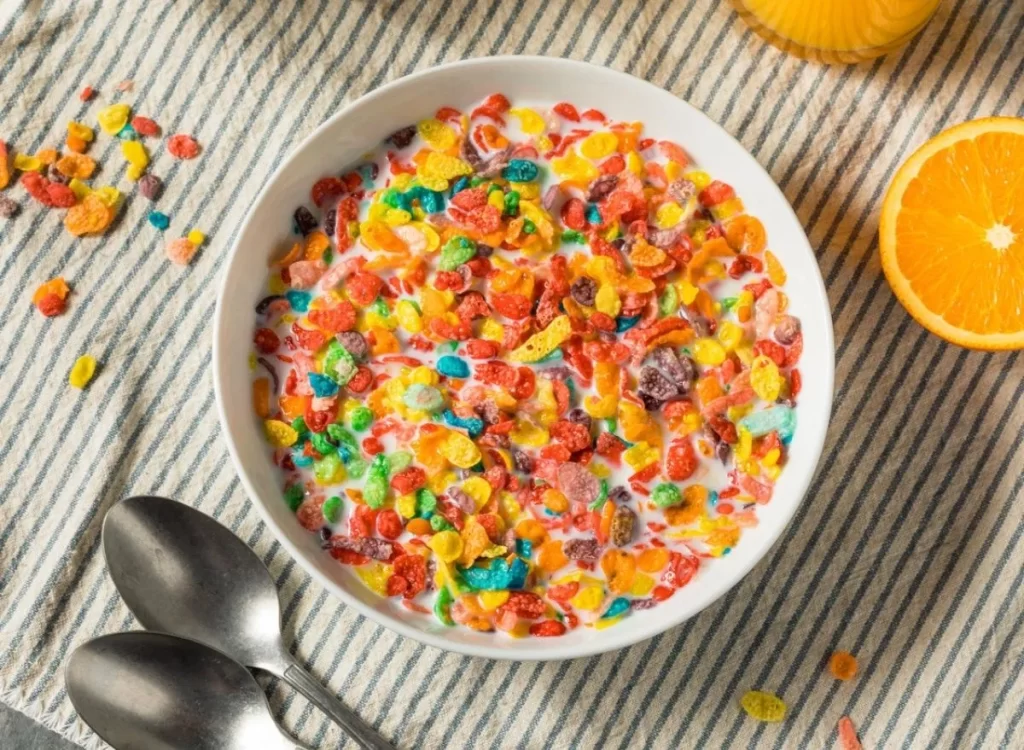
Starting your day with a bowl of sugary cereal may seem harmless, but it can set you up for cravings and excess snacking later on. Many popular cereals can pack a sugary punch, leading to increased calorie intake. A study showed that people who consume high amounts of added sugar are at a greater risk of gaining abdominal fat.
When I switched to oatmeal topped with berries, I felt fuller longer, and my energy levels soared! It’s all about finding alternatives that nourish you instead of leaving you hungry.
2. Microwave Popcorn
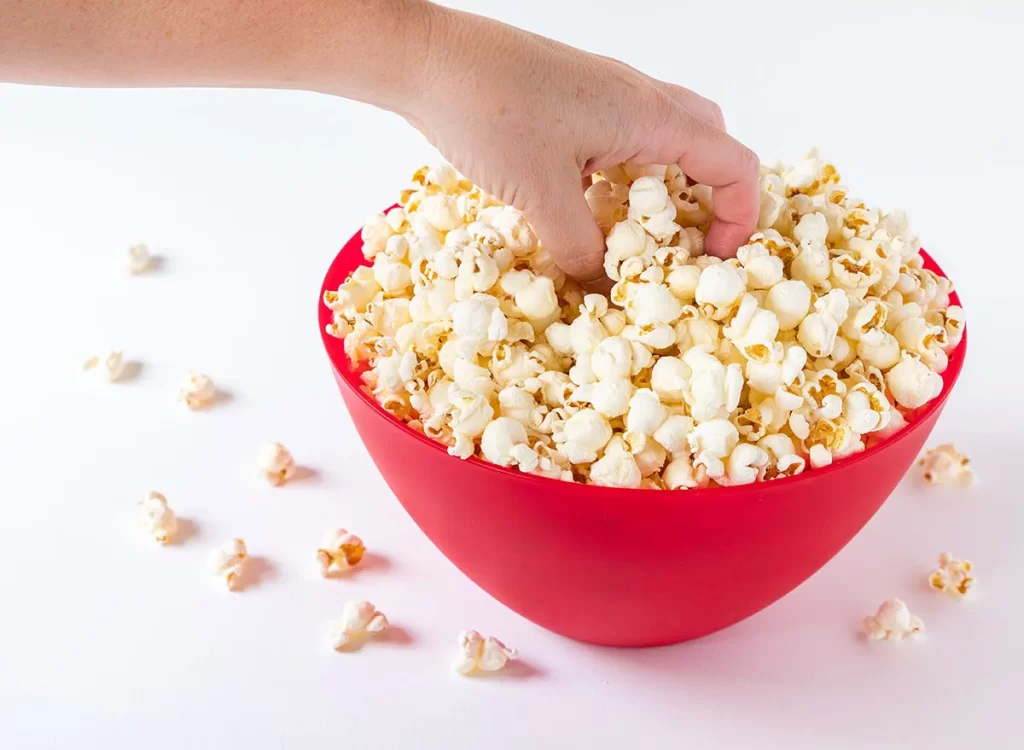
Popcorn is a go-to snack for many movie lovers, but it’s essential to be cautious. Many brands still contain partially hydrogenated oils, a major source of trans fats. Checking labels for “hydrogenated oils” can save you from consuming those sneaky trans fats.
When I started making air-popped popcorn at home, I found that it was just as satisfying—plus, I could control how much salt and flavor I added. A quick scan of the label can make a delicious difference!
3. Packaged Pastries
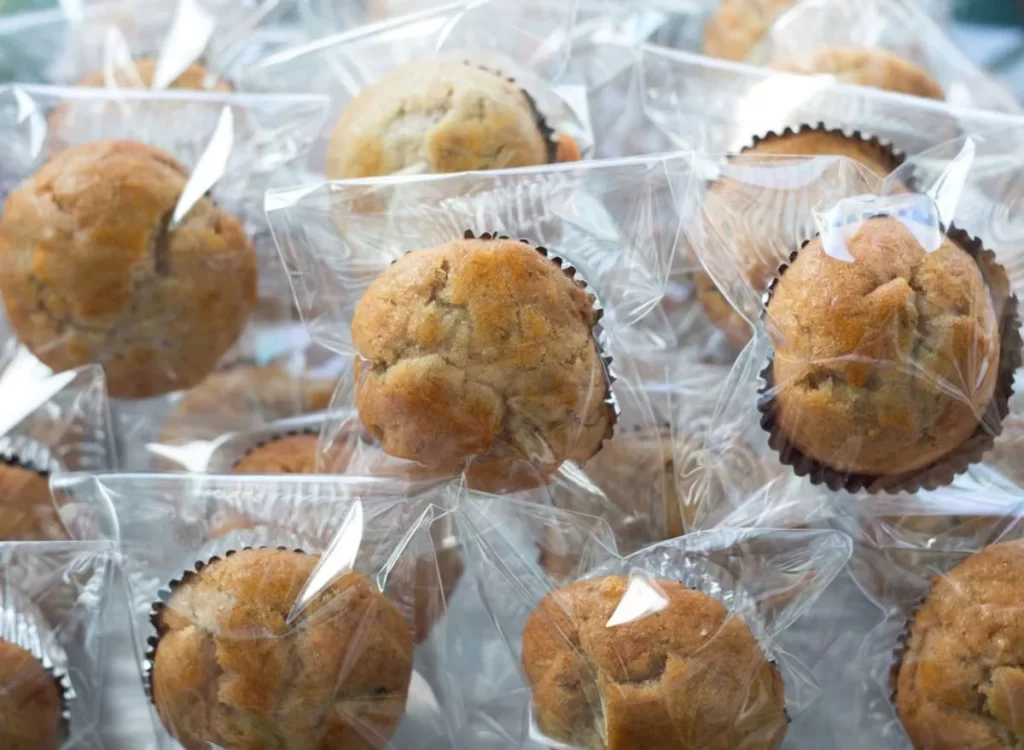
Who doesn’t love a warm muffin or donut? But those packaged pastries can wreak havoc on your waistline. They often harbor high levels of trans fats and added sugars. One study found that eating bread rolls high in trans fats increased body fat, especially in postmenopausal women.
After I started baking at home, I realized I could enjoy these treats without the guilt. It’s amazing how simple it is to swap out ingredients for healthier options!
4. Fried Fast Foods
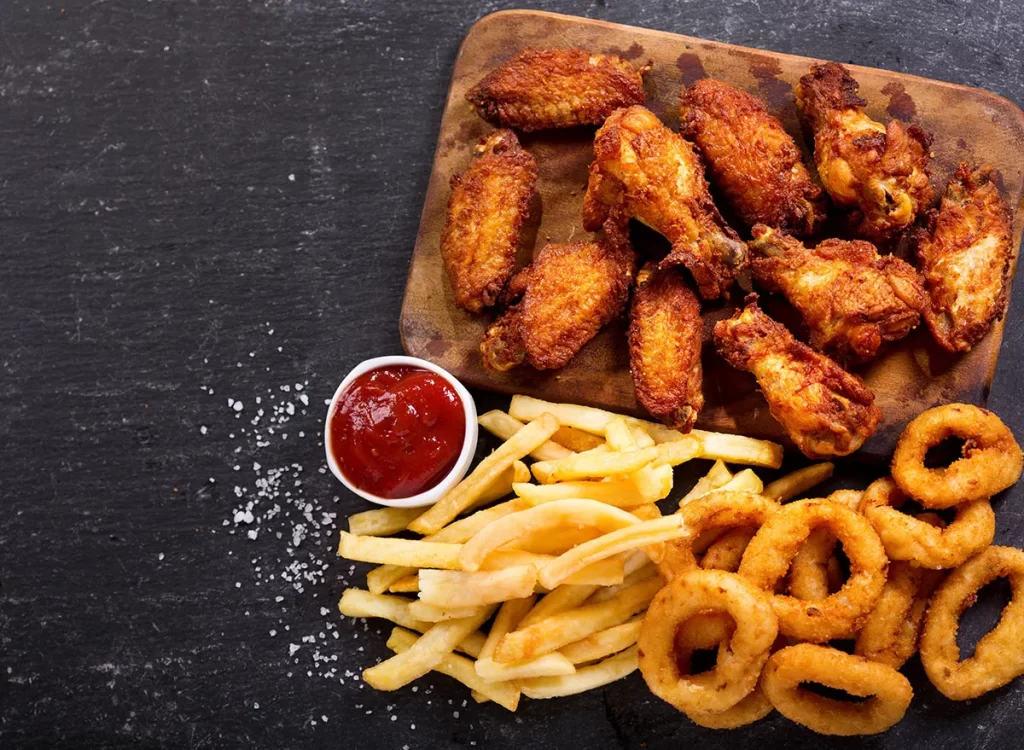
We all have those days when fast food feels like the only option. However, regular consumption of fried fast foods, often cooked in unhealthy oils, can lead to increased abdominal fat. Research shows that fast food is linked to visceral fat—the kind that wraps around your organs and is especially harmful.
When I began cooking at home more frequently, I experimented with healthier versions of my favorite fast foods. Homemade baked fries or grilled chicken sandwiches quickly became staples, and I didn’t miss the greasy options at all!
5. Processed Meats
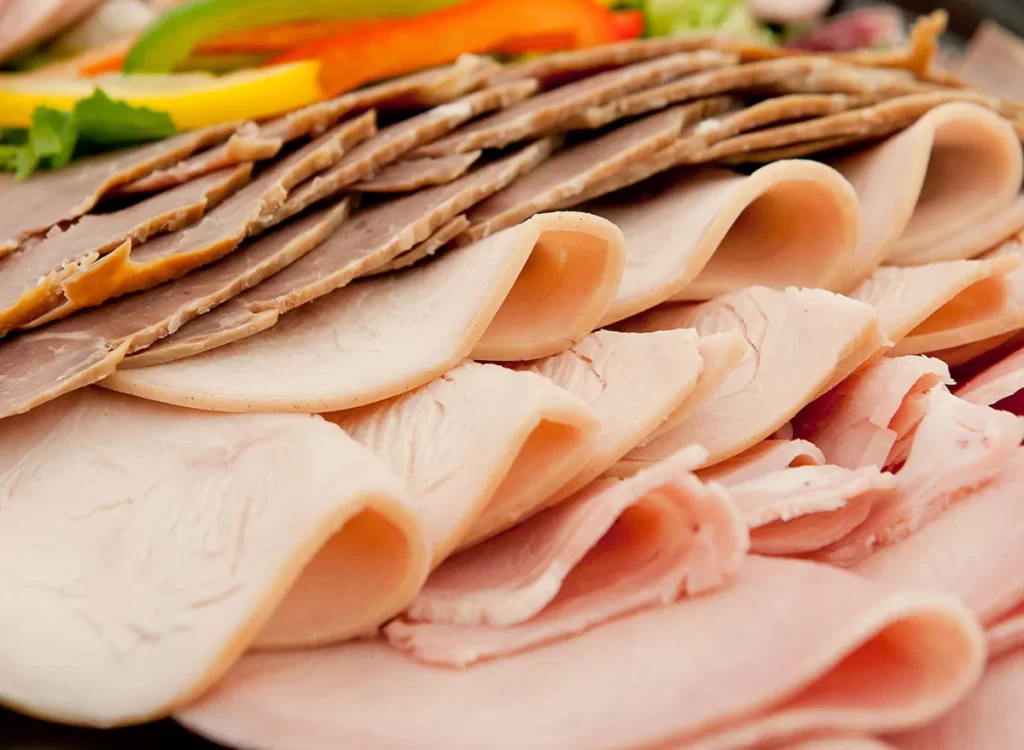
Pepperoni pizza? Sure, but let’s keep it as a rare indulgence! Processed meats, like sausages and deli meats, are not only linked to health risks but can also contribute to weight gain. A diet low in processed meats and high in fruits and veggies can prevent abdominal fat accumulation.
When I made a conscious effort to reduce processed meats, I felt better overall. It’s incredible how simple swaps, like choosing fresh turkey or chicken, can transform your meals.
6. White Bread
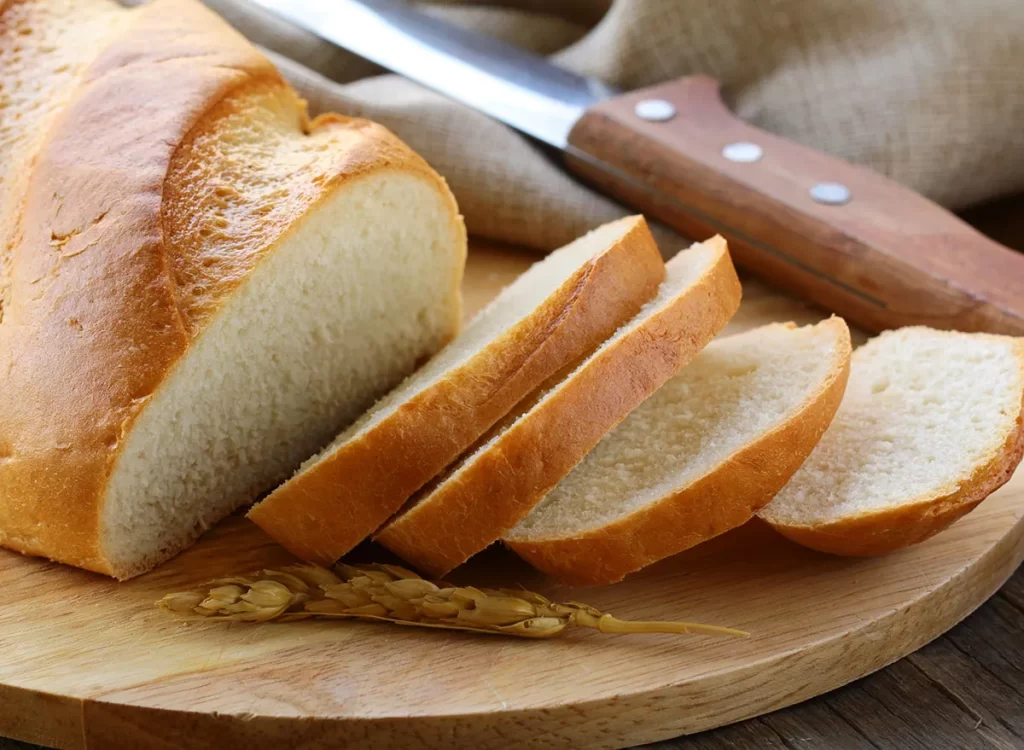
Switching from white to whole grain bread was one of the simplest changes I made. White bread lacks the fiber and nutrients of whole grain options and is associated with higher visceral fat. In fact, a large study found that higher intakes of refined grains were linked to increased abdominal fat.
Now, when I make sandwiches or toast, I always opt for whole grain. Not only does it keep me fuller longer, but it also feels good to nourish my body with better choices!
7. Candy
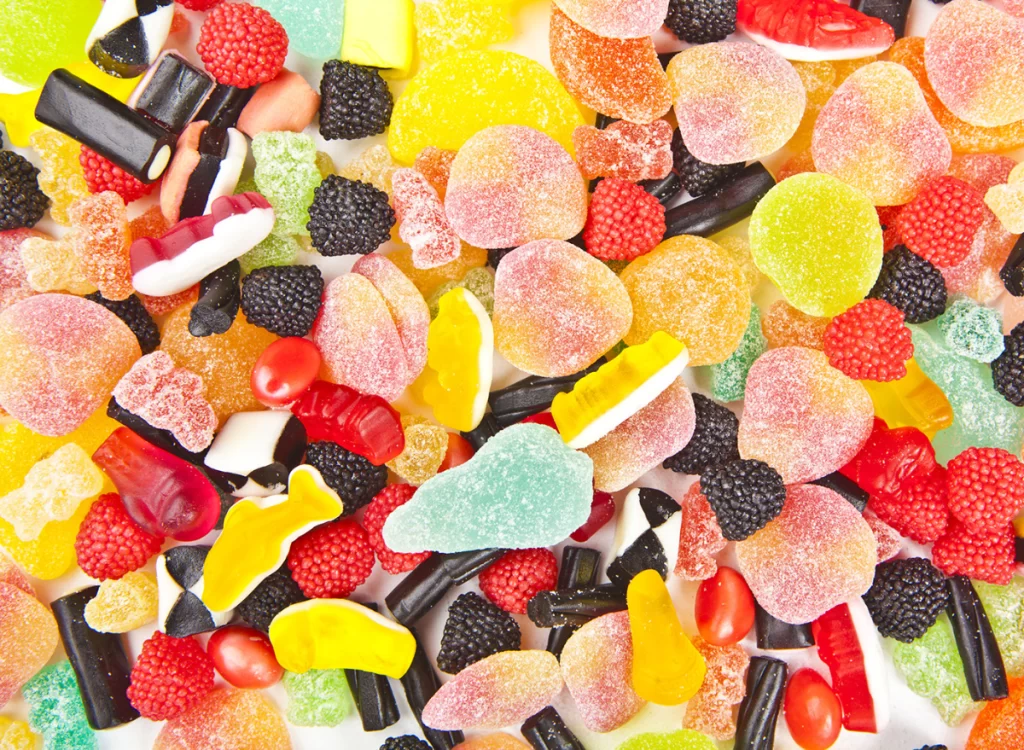
Admittedly, I have a sweet tooth! But after learning how candy contributes to belly fat, I started keeping healthier snacks on hand. Candy is high in simple carbs, which can lead to weight gain if not burned off. Plus, they offer empty calories that don’t satisfy hunger.
Instead of reaching for a candy bar, I’ve found that a few squares of dark chocolate or a handful of mixed nuts hits the spot without the sugar crash.
8. Bottled Salad Dressings
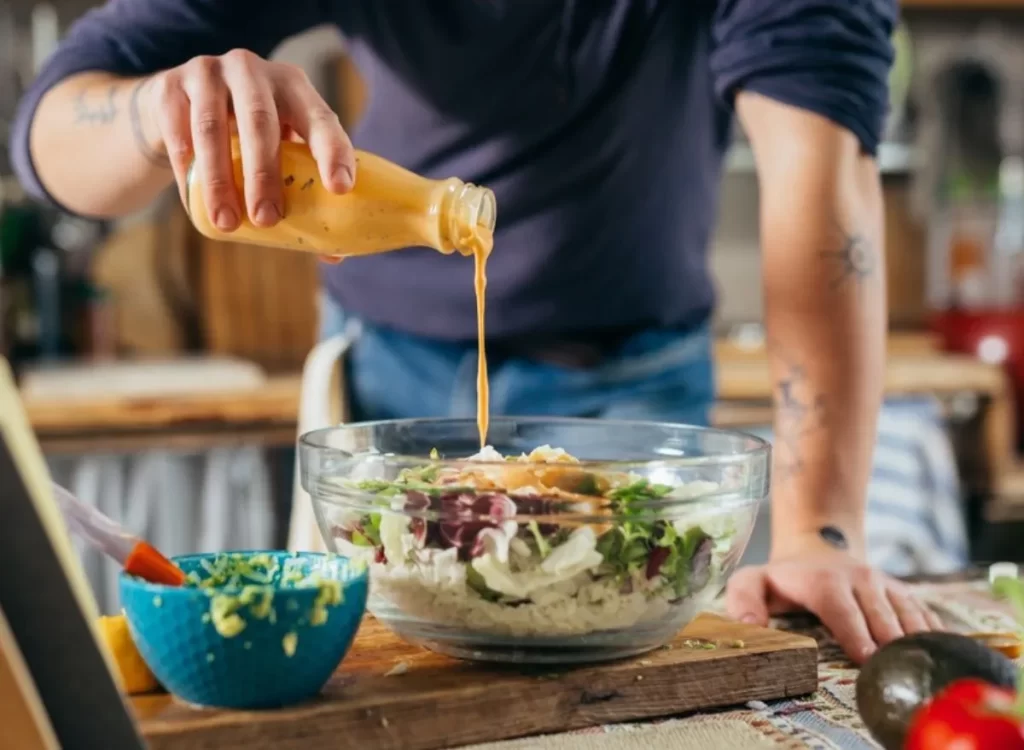
I used to pour bottled dressings on my salads without a second thought. Many are loaded with trans and saturated fats that can sabotage your efforts to lose weight. Opting for olive oil and vinegar has made my salads not just healthier but also more flavorful.
When I started making my own dressings, I realized how easy it is to control the ingredients. A simple mix of olive oil, balsamic vinegar, and some herbs elevates my salads without adding unnecessary calories.
9. Meal Replacement Bars
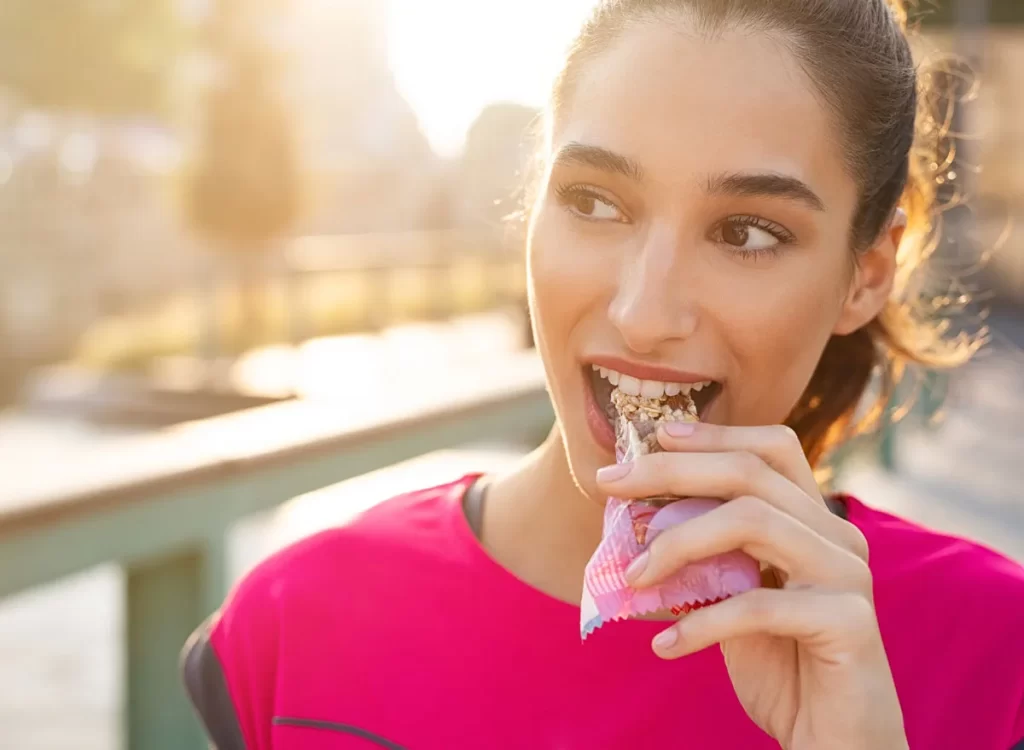
I tried meal replacement bars, thinking they’d be a quick fix. But many are processed and high in sugars, leaving me craving more. These bars often lack the fiber necessary to keep you full, which can lead to overeating later.
Now, I prepare my own snacks, such as energy bites made with oats, nuts, and a bit of honey. Not only do they keep me full, but they also provide lasting energy throughout the day.
10. Ice Cream

Ah, ice cream! I can’t resist a scoop, but I’ve learned to savor smaller portions. Ice cream is loaded with sugar and saturated fat, making it a potential belly fat contributor. Studies have shown a correlation between increased sugar consumption and abdominal fat.
Swapping to lower-sugar varieties has been a game-changer for my waistline. I now keep a stash of frozen yogurt and fruit pops for those sweet cravings without the guilt!
Conclusion
Navigating the world of food can be challenging, especially when trying to lose belly fat. By being mindful of the ten worst foods listed above, you can take significant steps toward healthier eating. It’s about balance and making informed choices rather than complete deprivation.
Feeling inspired? Start small—maybe try swapping out that sugary cereal for a whole grain option tomorrow morning. Every small step counts! Let me know how it goes, and share your favorite healthier alternatives!
Disclaimer: This article is for informational purposes only and is not a substitute for professional medical advice. Always consult a healthcare provider before making significant dietary changes.
source: eatthis.com

